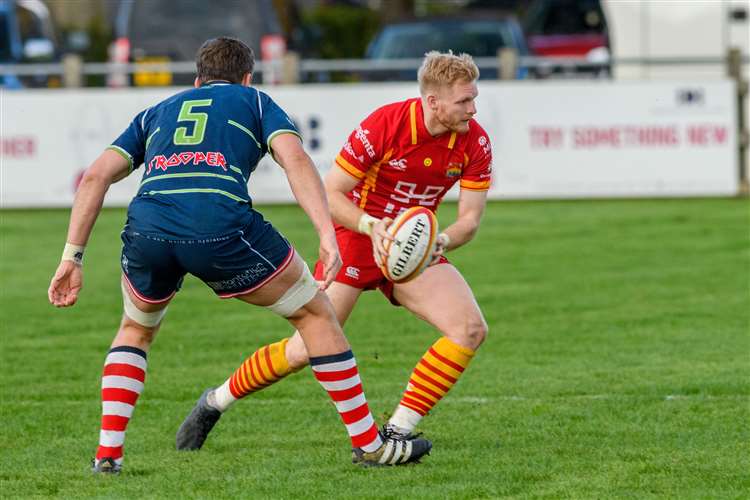
From rugby to recruitment: why mental health matters
Lawrence Rayner, a Senior Recruitment Consultant in the MorePeople Operations team, recently became the mental wellbeing ambassador for his rugby club. Lawrence made the transition from professional rugby to semi-pro back in 2017 and struggled with unexpected anxiety around the move and working out what he wanted to do with his life.
His new club, Cambridge Rugby Club, offered mental health first aid training to all players and Lawrence embraced the opportunity. Since completing the course, he has realised the potential benefits for his own mental health, his team mates and, equally, his working life.
Here, Lawrence explains why talking about mental health is just as important in the workplace as it is in sport.
What motivated you to take part in the mental health training course?
Having experienced my own issues when stepping down from professional sport, I was keen to support others in similar situations. Competitive sport can be a great relief from stress, but equally it can create stress when you’re maybe not playing as well as you know you can or you’re not being picked for the team. Add this to other life stresses outside of the game and it’s easy to see how you can end up in a difficult place mentally.
What were your main takeaways from the training?
For me the three key learnings were being able to spot the tell-tale signs that somebody is struggling, knowing how to handle the situation when you witness it and then, most importantly, how to open up a conversation about it. It sounds simple, but there were some real lightbulb moments for me.
What does it mean for your rugby club to have you as a mental wellbeing ambassador?
Breaking the stigma of men talking about mental health is becoming much more of a priority in society, and we’re lucky that the club is switched on to the need to support players both on and off the pitch. I see my role as essentially keeping an eye on my teammates, being aware of any signs that they may be having a difficult time, whether because of the sport or otherwise, and encouraging them to talk to me about it.
How do you see these skills also benefitting your working life?
We wrote a blog post back in May 2019 which asked ‘Is enough being done to support mental health in the workplace?’, and this highlighted that as little as 14% of people were not comfortable discussing their mental health worries at work. With the Covid-19 pandemic forcing office workers to work from home for the majority of 2020, this is causing new mental health challenges for many and the figure could in fact now be even lower.
Recruitment is all about people, so being separated from your team and not having face-to-face meetings is difficult. It’s typically a fast-paced environment, a rollercoaster of ups and downs, with individual targets and KPI’s that can make life feel very stressful when you’re on your own. We try to use technology to keep connected, but it’s not quite the same. Having the increased awareness and skills that the course has given me can only help.
Has playing rugby helped you cope with life during the pandemic?
Sport and exercise help support your mental health naturally anyway, especially team sports or exercising with others. Unfortunately the two lockdowns took away this pleasure and it was sometimes hard to find the motivation to exercise on my own. I love the routine of team training two nights a week with a match at the weekend, so am very much looking forward to getting this back asap.
How has the rugby club tried to keep the team engaged during lockdowns?
The club has been really proactive at keeping everyone together and engaged. A massive social aspect of rugby has been taken away, so trying to keep this going has been the focus. Getting together on Zoom or Microsoft Teams has allowed everyone to chat about how they are feeling with developments and share thoughts on how, when we are out of this lockdown situation, we can kick start the season/efforts where we left off. It’s a real collective effort to keep everyone close and socially engaged with everyone. The social side is a huge part of sport and it’s why we play.
Photo courtesy of Chris Fell
